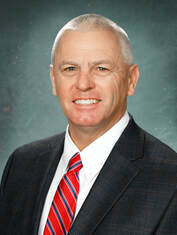 Improving opportunities By Sen. Jon Bumstead 34th Senate District When I was in high school, I faced the same decision many teens face as they grow older: What do I want to do with my life? I did not follow what many would consider to be a traditional career path. During high school, I enrolled in Newaygo County’s Career Tech Center to learn real-world skills that can’t be taught by a textbook. I decided to learn skills for the construction industry and pursue a career as a home builder. I think all Michigan students should have the ability to make similar decisions regarding their futures — though sometimes the current system doesn’t provide a good process for making those decisions. I recently introduced legislation to give more flexibility to local school districts when choosing graduation requirements. I believe our current requirements don’t always allow students to explore possibilities that better suit their interests or needs. These requirements sometimes limit student creativity and exploration. My goal is to better help students to be prepared for life after school, even if those plans do not include a traditional four-year college. In 2006, the Michigan Merit Curriculum went into effect and created statewide requirements for high school students in our state. Prior to 2006, graduation requirements were left up to the local school districts. Currently, students who follow the traditional route in Michigan must complete the following courses and credits to receive a high school diploma: • Four credits in English; • Four credits in mathematics (required: algebra I, geometry and algebra II); • One credit making up both physical education and health; • Three credits in science; • Three credits in social studies (required: U.S. history and geography, world history and geography, one-half credit in economics, and civics); • One credit in visual, performing and applied arts; and • Two credits in world language. Senate Bills 600 and 601 would allow students more opportunities to enroll in courses or programs they find interesting or wish to pursue as a career. Specifically, the bills would eliminate the algebra II requirement for graduation. Michigan is one of only seven states to require algebra II for graduation, and eliminating this requirement would open up opportunities for students to enroll in courses that would better prepare them to meet their goals for the future. These changes will make sure students are ready for the next step after high school, whether that’s entering the workforce or attending a trade school or college. School districts should have the ability to make choices that are best for them, rather than being forced to follow a state-mandated, one-size-fits-all policy. I’ve always believed that local schools have a better understanding than the state of what their students need to be successful. Parents, teachers and administrators who know and work with these students every day are more than capable of making these decisions, and my legislation will take steps to give schools the ability to do so once again. SBs 600 and 601 currently sit before the Senate Committee on Education and Career Readiness for further discussion. The first committee hearing is scheduled for Tuesday, Nov. 5, where two Muskegon County superintendents will join me to testify on the legislation. Sen. Jon Bumstead, R-Newaygo, represents the 34th state Senate District, which includes Muskegon, Newaygo and Oceana counties. Former Lion Eric Hipple to speak at the Dogwood
By Carol Mills, Executive Director, Newaygo County Mental Health When I watch professional athletes, I sometimes wonder what their lives are like. Do they have the same problems and challenges we face in our daily lives? Do they do their own grocery shopping? Do they use the quick change oil places like I do? Do they rake their leaves, clean their gutters and pick up sticks in their yards? What about their families? Do they have children? Do they have family members in the hospital or nursing homes? What about illness? I am a Detroit Lions fan, for better or worse. Those that share this feeling know that this choice brings much heartache and pain, and every once in a while, happiness. I used to watch Eric Hipple play as the quarterback for the Detroit Lions and rejoiced when he helped navigate the Lions to the playoffs in 1982. I never thought about what his life was like. It never occurred to me that professional athletes experience the same joy and sorrows that we do. Eric Hipple has agreed to share his story with Newaygo County Wednesday, October 23, 2019. It is a story of survival of many challenges that he has faced in the years since his retirement. They are challenges that all of us pray to never know – suicide, mental illness, depression and the struggle to survive the problems life throws at us. These challenges are, for many, a part of their daily life. These stories are ones that affect every family at some point in their lives. This is Eric’s story of his personal journey of survival, resilience, and how he now thrives in his life. Please come and join us as Eric shares his personal journey. He will be speaking on Wednesday, October 23, 2019 at 7:00 p.m. at The Black Box in the Dogwood Center in Fremont. This event is sponsored by Families Against Narcotics, and is a free event. No reservations are necessary. To The Editor: I would like to take a moment to acknowledge the incredible staff at Spectrum Health Gerber Memorial Hospital. My four year old son has a number of complex medical conditions and uses alternative modes of communication. He has an extensive medical history, including open heart surgery and many hospital stays for illnesses, surgeries and procedures, along with routine lab work. Naturally, hospital visits can be scary for him. Yesterday he needed some supportive care to help him battle a respiratory infection. I opted to have him treated locally as opposed to driving to Grand Rapids. The nurses, doctor and support staff were phenomenal. Not only did my son receive excellent medical care, the skilled staff also worked hard to understand how best to communicate with him. I had full confidence he would be assessed and treated appropriately with the ability to be transported to Devos if necessary. What a blessing it is to have such a wonderful resource in our local community! Allisa Hance Buck Geno: Labor Activist and Radio Host
By Charles Chandler When we seniors, the walking wounded and other lightweights are making our rounds at the Tamarack Fitness Center in Fremont we know when Buck Geno is in the house. He is always the guy with the towel around his neck and perspiring from head to toe from his intense and lengthy workouts. Sometimes when Buck is so focused, I think he still hears those Marine Corps Jody cadences. A few days back I approached Buck as he took a break from grinding up the stair-stepping machine. I said that I was doing some articles for Near North Now on radio and had heard that he was a radio host and I would like to hear the story. He agreed and a couple of phone calls and some calendar juggling and the date was set. We met Buck at his and Barbara’s lovely family home on the quiet side of North Baldwin Avenue. We sat in a bright spacious sunroom and looked out on their beautiful lawn and colorful flower beds. This well cared for property has been in Buck’s family for generations. Buck is a well-known family man and a stand-up guy around White Cloud, Lincoln Township and in Newaygo County. He is also a Marine, a Vietnam Era Vet and a member of the Newaygo County Democratic Party. Geno is an unapologetic labor activist. and has been a member of the United Association of Plumbers and Pipefitters Local 70 and Local 174 for about 42 years. From 2000 Buck has served as Supervisor at Lincoln Township in Newaygo County and is the President of the Newaygo County Township Officers Association. Buck has been involved in public radio for about 15 years. Why public radio? According to Buck he and a group of labor activists called Friends of Labor had been searching for a way to present a positive message about Unions to the folks in West Michigan. “We had tried a few other avenues and decided that we would try the radio. We began at WTKG in downtown Grand Rapids. It was a one-hour program called Working West Michigan. It was a Community Service program and our format was to not necessarily focus on hardcore labor issues. We wanted to be the voice of ordinary working people and speak to issues that were important to them. “At first, I tried to work from a script but that didn’t work for me. I wanted to talk to the listeners like I was sitting down with them having a cup of coffee. We did Working West Michigan show for a couple of years and then we had a call from Bob Goodrich, Bob owned a chain of Goodrich Quality Theaters all over the county. Bob also dabbled in radio and liked our show and offered to sponsor us at his station at WPRR. “I also did a spinoff show called The Monday Report with Michael Johnston a retired Labor Historian? Then we went on a National Broadcast program called the Union Edge out of Pittsburg, PA. This was a daily show five days a week with a three-hour program. We were a portion of that. My office is in the basement and it was pretty easy if you have the technology. All you need is a good computer, a flash drive and a phone. We did that show for a couple of years until the program lost its funding. “Then I got a call from Jim Chase. He was a friend of mine and a member of the Teamster Union. He was thinking about retiring but wanted to continue with radio. I agreed to help but I had been doing programming, scheduling, calling and setting interviews for the other programs and I didn’t want to do that anymore. Jim said to not worry about that because he would do that. We started a program called Cut to the Chase with Jim, Dave Johnston and myself. “We are not professional or smooth talking radio hosts. We try and stay away from hardcore labor issues, have a lighter tone, and include some humor in our program. We try not to get caught up in National politics. It is too divisive, too much animosity. Our focus is to provide factual content and there is no lack of things to talk about in Michigan. We usually talk about topics that are important inside the State, like the roads, redistricting. There have been some really big changes in the State this year. We were talking about Medical Marijuana and now it is Recreational Marijuanat. Healthcare is very concerning to many people because it can drive you into bankruptcy so quickly. We are trying to educate folks about the importance of the upcoming census because it affects so many areas. It impacts funding for roads, infrastructure, and Medicare. “We also like to present both sides, both left and right, and have a generalized debate on these issues. We like to hear and understand why people say and do and believe what they do. We invite a guest speaker to the program from time to time and have had Governor Gretchen Whitmer on the program. “What we prefer are community activists rather than politicians. I am still a labor activist and will go back to my roots and work to educate those who are anti-labor so they understand why it is important for people to make a living wage. The rising tide lifts all boats. “I also recognize that in previous decades Unions and membership, in general, have been in a serious decline but I believe that things have turned around because of the little things like what we do on the show. .We are part of organized labor and we know that the labor movement is like a pendulum and it swings back and forth. I am optimistic about what I see in the next generation, (millennials). They are starting to pay attention to what they have and don’t have and the reasons why. “Also the Industrial Workers of the World (IWW), is out there working for the common good. It is an international labor union that includes many unions and their goal is solidarity and working for the rights of all people. If you are united you can bargain for better pay and benefits. If you aren’t united you are doing individual begging. “Things are good now for some working folks but not all. We do have health care, pensions, some 401(K)s and livable wages. The Unions fought for these things for years and are still fighting. But it’s not universal and there is still a lot of poverty here in West Michigan. We will continue to fight for the rights of all working people and we believe they should be able to earn a living wage. “ I asked Buck if he thought radio was still relevant and had some social and practical value in today’s media mashup? “We think it does and we think we can make a difference through radio and have a little fun. Even if it is with one person at a time then we are happy with that. I remain optimistic about labor unions and believe that radio is the way to go. We want to be the voice of working men and women.” So why would Buck want to take on this band of giants? Probably because he is a stand-up guy for his family, community, and is an unapologetic labor activist that leads by example. As he said they are not professional and not smooth-talking radio hosts. “We just have fun and present ourselves and the voice of all working people because it is simply the right thing to do.” Cut to the Chase can be heard at WPRR -90.1 FM, 1680 AM, 95.3 FM, and 102.5 FM. and on 1680 AM on Tuesday from 10:00 AM to 12:00 PM.Their call-in number is 231 656 1680. 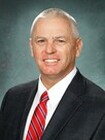 By Sen. Jon Bumstead 34th Senate District Over the last two weeks, my colleagues in both chambers of the Legislature negotiated and finalized a responsible budget to fund our state for the 2020 fiscal year. This process kicked off after the governor presented her executive recommendation in early March. Since then, the Legislature has taken its time to craft and pass a budget that meets the needs of Michigan families. After negotiations were burdened by the governor’s threatened massive tax hike on Michigan families, we finally moved forward with budgets based on what we could afford, not what we can get from taxpayers. We approved a K-12 plan that invested $15.2 billion in education, a total increase of nearly $400 million from last year’s budget. Under our plan, schools across the 34th Senate District would see a foundation allowance boost, while special education, student safety and skilled trades training would also see notable increases. Schools had already started their years with uncertainty, and we had reached the time to act. The Legislature’s plan also included $5.3 billion in transportation funding to improve our state’s infrastructure. Specifically, the plan included $400 million in one-time funding for local road and bridge construction. This money would have been used to fully implement the $1.2 billion roads plan from 2015 with additional revenue left over. Instead, what we got was a myriad of red ink, in the form of vetoes from the governor, that carelessly harms Michigan families. Included in Whitmer’s vetoes Monday evening was $15 million for municipal airports, like the one in Muskegon County, for costs associated with PFAS, and $7.5 million for private well testing. Water quality has been an agreeable issue throughout the budget discussions. Since the beginning, the governor has supported our state’s natural resources and the importance of clean drinking water, yet she vetoed millions of dollars that would have helped protect our environment and ensure folks have clean drinking water. She also slashed $35 million from public charter schools, which will have an immediate, negative impact on schools in Muskegon Heights and across the state. These cuts will do nothing but reduce educational opportunities that would have otherwise been there. Our students and educators deserve better than to be used as political leverage. Perhaps the most confusing of the governor’s decisions is her veto of nearly $400 million in road funding. I know I’m not alone in trying to understand how our governor, who campaigned on the need to fix Michigan’s roads, and who has relentlessly pushed for a massive tax increase to do so, could veto funding to continue local road repairs while we seek a long-term solution. I don’t understand how having $375 million less is a better solution — especially when it all came from existing revenue. The governor also vetoed funding to reimburse county jails for housing inmates, help ensure veterans receive the services they deserve, put more Michigan State Police troopers on the road, help rural communities by providing adequate access to health care and improve efforts to protect our environment. I am proud to have supported the responsible budgets passed by the Legislature. Hardworking families across the state collectively rejected the governor’s massive tax hike, and lawmakers in the governor’s own caucus refused to introduce her plan. Instead, we did what many working families have to do with their budgets: We tightened our belts and made it work with money that we had. I join many others in expressing my extreme disappointment in the governor’s actions Monday evening. Her political statement will dramatically affect education, public safety and water quality testing, among other crucial programs and services in my district. Sen. Jon Bumstead, R-Newaygo, represents the 34th state Senate District, which includes Muskegon, Newaygo and Oceana counties. |
Letter to the Editor PolicyNear North Now welcomes original letters from readers on current topics of general interest. Simply fill out the form below. Letters submissions are limited to 300 words. Archives
July 2024
Categories |
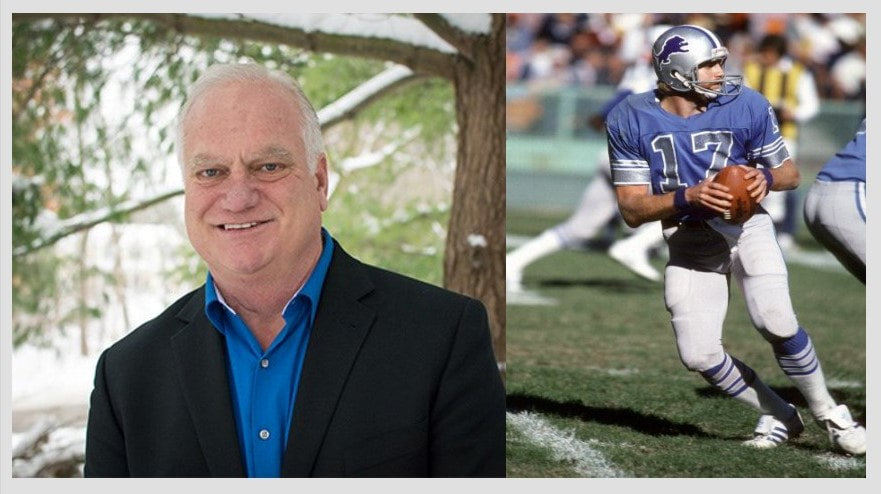
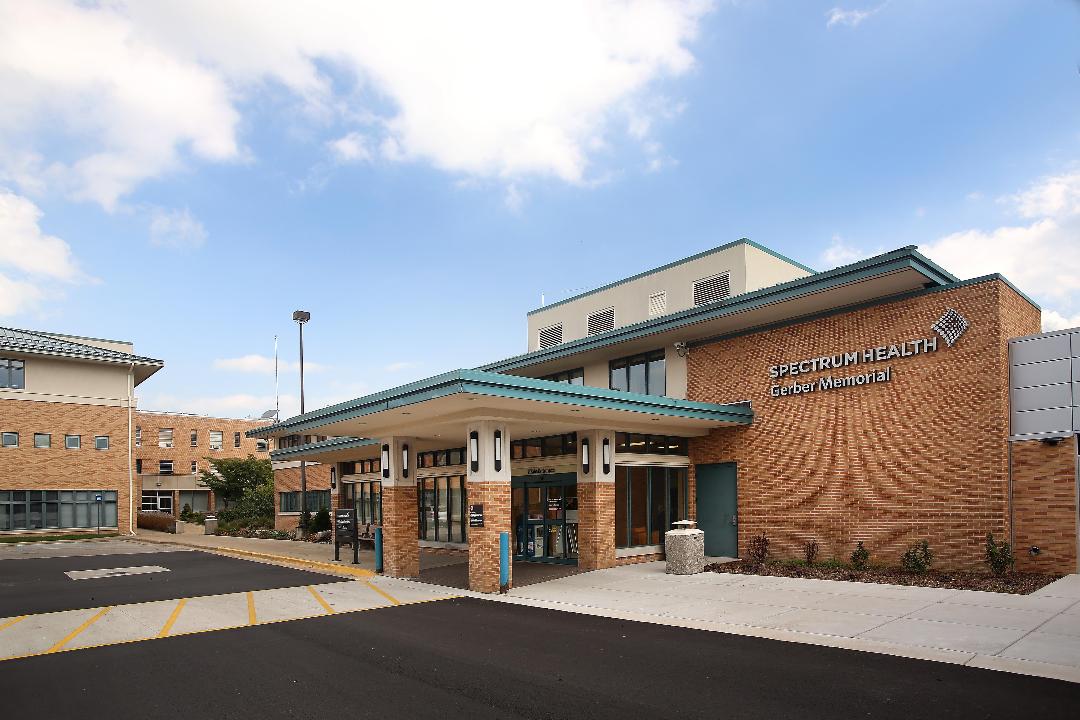
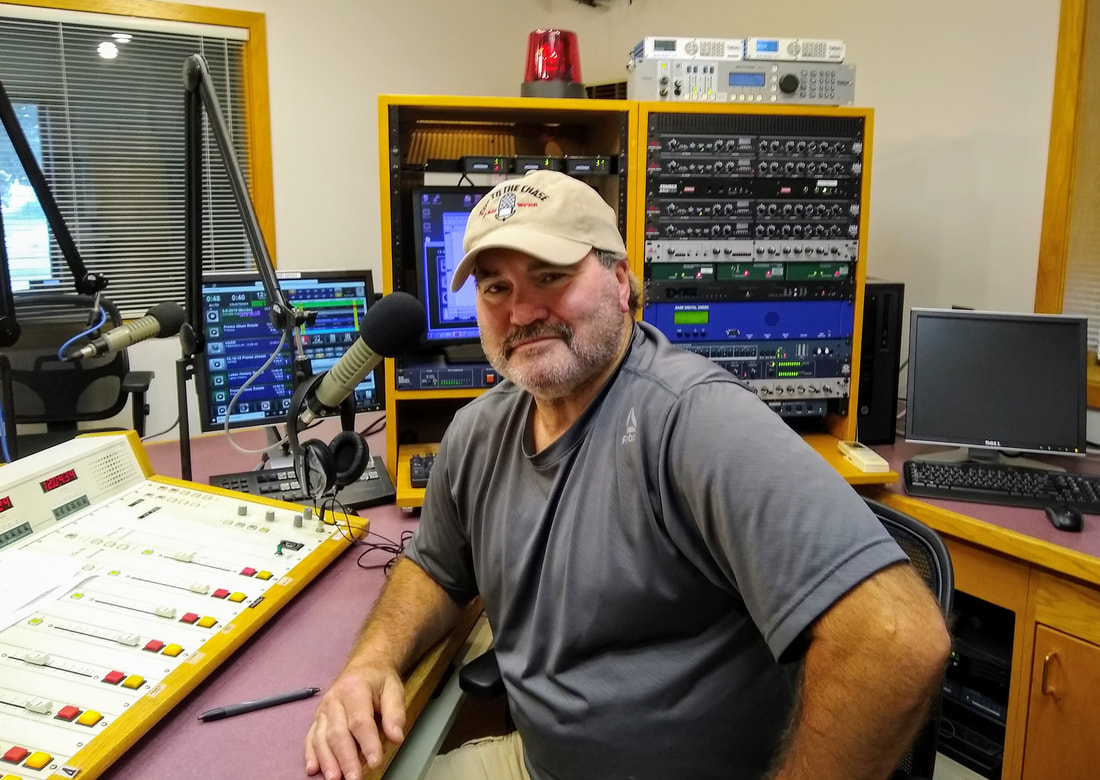
 RSS Feed
RSS Feed